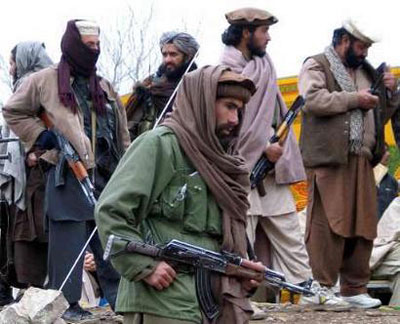
The German public is transfixed by Afghanistan because German soldiers are serving there. Foreign Minister Steinmeier just concluded another visit to the country. With this focus, neighboring Pakistan too often escapes deserved attention, but there’s a war being fought there as well. Last year, 9,000 people were killed by force and by terror attacks in Pakistan – more than the number that died in Afghanistan.
On the foreign policy level, Pakistan is far more significant than Afghanistan. The country has as many inhabitants as Germany, France and Spain combined. There are several million Pakistani residents in the European Union, mainly in Great Britain. The European terrorist connection can often be traced back to Pakistan, the Sauerland terror cell in Germany among them. Above all, however, the country is a nuclear power and possesses more than 60 nuclear warheads. Allowing Pakistan to decline into violence and chaos would be catastrophic for global politics.
The current wave of violence there is relatively new. Until 2002, there were no suicide attacks; now they even occur in the capital city Islamabad. The uprising began in 2002 in the tribal regions on the border with Afghanistan after U.S. troops began firing at cross-border extremist strongholds. The bombardments killed many civilians, women and children included. Then the Pakistani army came under attack because they tried to seal off the borders at the behest of the United States. Finally, the United States began applying enormous pressure on Pakistan to become involved in the “War on Terror” with their troops fighting alongside American soldiers. When that happened, almost all Pakistanis revolted against their government. Add to that the pervasive corruption and decay in government that further alienated the citizenry, and a political vacuum was formed that the Taliban and other extremist groups now fill.
The war in Afghanistan and especially the presence of foreign troops are important causes for the current wave of violence in Pakistan. And the war has now spilled over into Pakistan itself, particularly in the Pashtun regions. That’s why a troop surge in Afghanistan will also be bad news for Pakistan.
Germany, meanwhile, has become aware of the country’s importance, but isn’t sufficiently engaged there. It hasn’t changed direction, neither conceptually or in the commitment of resources. Washington has also not tried to stabilize Pakistan. Western policy continues to focus on using Pakistan to fight the war in Afghanistan – something that adds to destabilizing the country.
A strategic catastrophe is being caused by this tactical error. Above all, the West should be supporting federalism and combating corruption in Pakistan. The Western public and its policies oscillate between neglecting the nation and becoming hysterical about Taliban encroachment. Both are pushing the country further toward the abyss. Pakistan deserves to be the center of policy in the region and shouldn’t continue to be just an appendage of Afghanistan.

Leave a Reply
You must be logged in to post a comment.